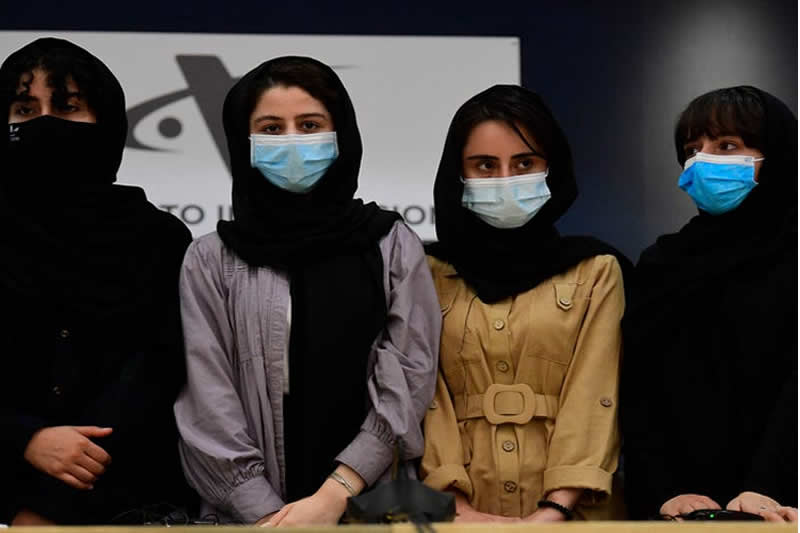
Vulnerable Afghan women and human rights activists rescued from Kabul by joint aid mission
Vulnerable Afghan women and human rights activists rescued from Kabul by joint aid mission between the United Arab Emirates and Israel. After the Taliban’s takeover of Afghanistan, the women, children and human rights activists’ future has become more uncertain.
Women in Afghanistan had been fighting for equal rights even before the Taliban arrived during the 1990s. In the past years, the Taliban’s advance across the nation meant risks, unsafety, kidnapping, and violence against women.
The joint mission brought 41 Kabul Afghans, including young ladies, ladies, and fundamental freedoms activists, flying them to the UAE.
Yotam Polizer, Israeli NGO IsraAID’s CEO, defined rescuers’ nerve-racking endeavours to accumulate escapees from Taliban controlled city of Kabul. It was hard to gather them from the hiding, he added.
Polizer stated that they were briefly deferred at the border near Tajikistan in the wake of driving north — stuck for two days in a protected house as they anticipated consent from the Tajik government for entry.
On Sept. 6, Israeli aid workers met the group of escapees in the Tajik capital of Dushanbe; they boarded a flight destined for the UAE, funded by Canadian-Israeli billionaire Sylvan Adams.
When the Taliban were last in power, from 1996-2001, little girls and women were banned from getting an education and working. On Sept. 13, the United Nations’ human rights Chief Michelle Bachelet criticized the Taliban for divulging from the promises they made on women rights.
Instead of giving them rights to education and safety, the Taliban have progressively excluded women from the public sphere for the past three weeks, Bachelet added.
She also expressed deep concern about the Taliban’s new government, seeing the shortfall of women and its predominance by ethnic Pashtun.
We have observed that numerous women and individuals from ethnic and religious groups are profoundly worried about their rights and privileges amid Talibani rule, she added.






